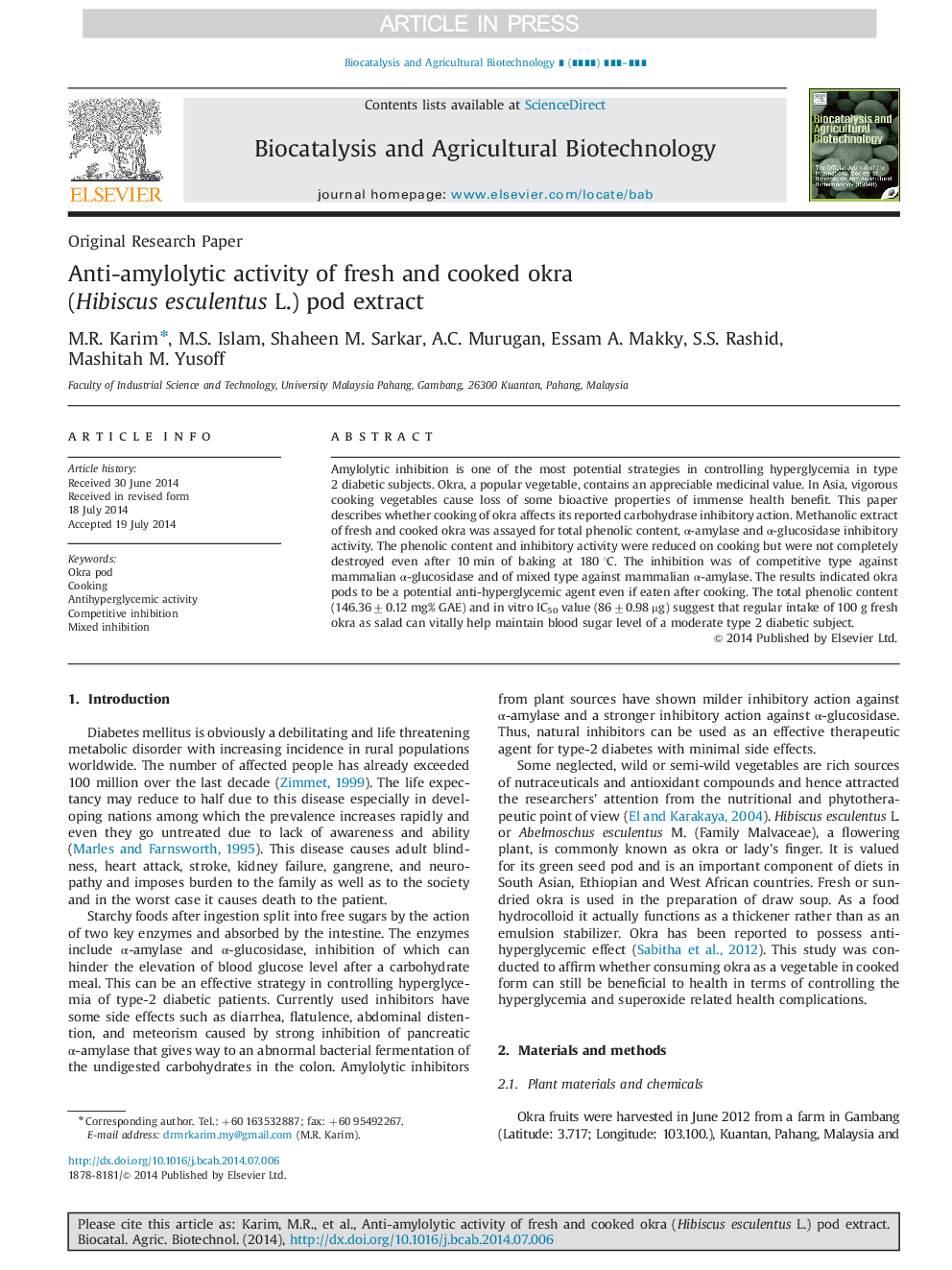| Article ID | Journal | Published Year | Pages | File Type |
|---|---|---|---|---|
| 10884511 | Biocatalysis and Agricultural Biotechnology | 2014 | 5 Pages |
Abstract
Amylolytic inhibition is one of the most potential strategies in controlling hyperglycemia in type 2 diabetic subjects. Okra, a popular vegetable, contains an appreciable medicinal value. In Asia, vigorous cooking vegetables cause loss of some bioactive properties of immense health benefit. This paper describes whether cooking of okra affects its reported carbohydrase inhibitory action. Methanolic extract of fresh and cooked okra was assayed for total phenolic content, α-amylase and α-glucosidase inhibitory activity. The phenolic content and inhibitory activity were reduced on cooking but were not completely destroyed even after 10 min of baking at 180 °C. The inhibition was of competitive type against mammalian α-glucosidase and of mixed type against mammalian α-amylase. The results indicated okra pods to be a potential anti-hyperglycemic agent even if eaten after cooking. The total phenolic content (146.36±0.12 mg% GAE) and in vitro IC50 value (86±0.98 µg) suggest that regular intake of 100 g fresh okra as salad can vitally help maintain blood sugar level of a moderate type 2 diabetic subject.
Related Topics
Life Sciences
Agricultural and Biological Sciences
Agricultural and Biological Sciences (General)
Authors
M.R. Karim, M.S. Islam, Shaheen M. Sarkar, A.C. Murugan, Essam A. Makky, S.S. Rashid, Mashitah M. Yusoff,
